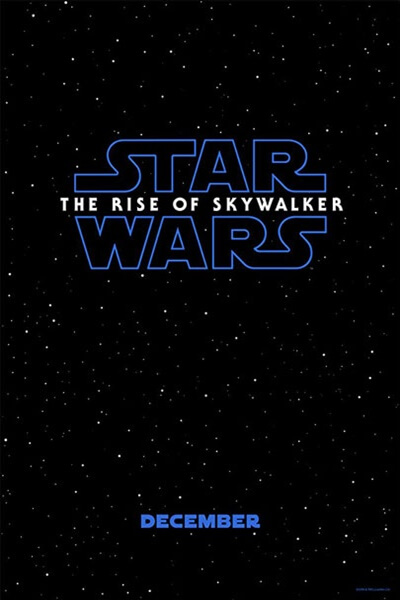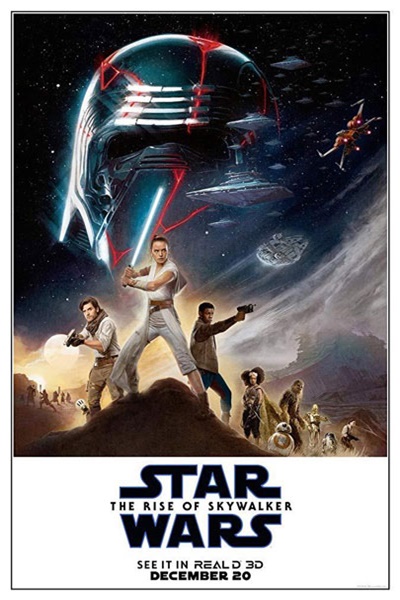
J.J. Abrams
Biography

Jeffrey Jacob Abrams was born in New York City and raised in Los Angeles, the son of TV producer parents. Abrams planned on going to dental school, but decided to study film at Sarah Lawrence College. At 15, he wrote the music for Don Dohler's Nightbeast (1982). In his senior year, he and Jill Mazursky teamed up to write a feature film, which became Taking Care of Business (1990). He went on to write and produce Regarding Henry (1991) and Forever Young (1992). He also co-wrote Gone Fishin' (1997) with Mazursky. Along with other Sarah Lawrence alumni, he experimented with computer animation and was contracted to develop pre-production animation for Shrek (2001).
Abrams worked on the screenplay for Armageddon (1998) and co-created (as well as composing the opening theme of) Felicity (1998), which ran for four seasons. He founded the production company Bad Robot in 2001 with Bryan Burk. He created and executive-produced Alias (2001) and Lost (2004), composing the theme music for both, and co-writing episodes of "Lost". He also co-wrote and produced thriller Joy Ride (2001). He made his feature directing debut with Mission: Impossible III (2006), reinvigorating the series. He produced the hit mystery film Cloverfield (2008) and co-created Fringe (2008).
He directed the Star Trek (2009) reboot, proving successful with fans and newcomers to the franchise. He next directed Super 8 (2011), co-produced by Steven Spielberg and produced Mission: Impossible - Ghost Protocol (2011). He returned to direct the follow-up to his reboot, Star Trek Into Darkness (2013). Disney and Lucasfilm announced J.J. as their choice for director of the first episode in the new 'Star Wars' trilogy, Star Wars: Episode VII - The Force Awakens (2015). He initially resisted, as he didn't want to travel away from his family to London, but Kathleen Kennedy convinced him that his voice would be the best to reinvigorate this franchise, as he had done with two others before. He also produced Mission: Impossible - Rogue Nation (2015) and Star Trek Beyond (2016), and executive-produced Star Wars: The Last Jedi (2017). When it was announced that Colin Trevorrow would no longer direct Star Wars: The Rise of Skywalker (2019), it was announced that J.J. would return to complete the trilogy he started.

Katie McGrath (1996 - present) ( 3 children)
Trivia
Son of Carol Abrams (born Carol Ann Kelvin), a producer, writer, and academic, and Gerald W. Abrams, a producer.
Attended and graduated from Sarah Lawrence College in Yonkers, New York (1988).
Gave Alias (2001) star Jennifer Garner a pink bicycle for her birthday. She would often greet the production crew by ringing the bells on the bike's handlebars.
He says he got the job directing Mission: Impossible III (2006) after Tom Cruise watched early episodes of Alias (2001) on DVD and loved them. The two started hanging out together and Cruise offered him the job.
While he was writing scripts in college, he used the Alvin Sargent screenplay to Ordinary People (1980) as a guide.
Named one of Fade In magazine's "100 People in Hollywood You Need to Know" (2005).
Has three children with his wife Katie McGrath: Henry Abrams (born 1998), Gracie Abrams (born 1999) and August Abrams (born January 11, 2006).
His debut film Mission: Impossible III (2006) was the most expensive film ever made by a first-time director until TRON: Legacy (2010), directed by Joseph Kosinski, which cost nearly $20 million more than MI3.
He had discussed wanting to be more involved in the third season of Lost (2004) (intermittently with his film schedule) because he had not been directly involved in the series since the sixth episode of the first season.
Sold his script for Forever Young (1992) for $2 million.
Is one of 115 people invited to join the Academy of Motion Picture Arts and Sciences (AMPAS) in 2007.
Ranked #29 on Entertainment Weekly magazine's The 50 Smartest People in Hollywood (2007).
In 2007, Forbes magazine estimated his earnings for the year at $17 million.
He has been involved with several projects that advance the social theory called the "Milgram Small World Phenomenon", named after social psychologist Stanley Milgram, who conducted acquaintance path experiments. John Guare's play "Six Degrees of Separation" (and its film adaptation Six Degrees of Separation (1993)) is in large part responsible for introducing to popular culture at large the notion that everyone in the world is separated by only six other people (Abrams had a small acting role in the film version). Abrams went on to produce Six Degrees (2006), a television series with a premise predicated on this theory, and Lost (2004), a television series in which seemingly unconnected and disparate characters often end up having hidden or unknown links to each other.
Personal Quotes 
Star Wars: Episode IV - A New Hope (1977) is probably the most influential film of my generation. It's the personification of good and evil and the way it opened up the world to space adventure, the way westerns had to our parents' generations, left an indelible imprint. So, in a way, everything that any of us does is somehow directly or indirectly affected by the experience of seeing those first three films.
I feel like in telling stories, there are the things the audience thinks are important, and then there are the things that are actually important.
Directing's the best part. Whenever I've directed something, there's this feeling of demand and focus that I like. And secondly, it means that you've gotten through all the writing stuff, and the producing stuff, and casting, and prep, and all those stages that are seemingly endless. So directing is sort of the reward for all the work you put in before. And then there's the editing, which is another amazing stage of the process. It's incredible the moments you can create.
I'm an impatient guy and tend not to like to stay with one thing for a long time. I'll never be able to write as many scripts as I did for Felicity (1998) or Alias (2001) ever again. I'm just too impatient these days. I want to get on to the next project.
I've always liked working on stories that combine people who are relatable with something insane. The most exciting thing for me is crossing that bridge between something we know is real and something that is extraordinary. The thing for me has always been how you cross that bridge.
There's something about looking at Super 8 films that is so evocative. You could argue it's the resolution of the film somehow because they aren't crystal clear and perfect, so there is a kind of gauzy layer between you and what you see. You could argue it's the silence of them. You could say it's the sound of the projector that creates a moodiness. But there's something about looking at analog movies that's infinitely more powerful than digital.
[on missing writing Felicity (1998)] I miss writing for a show that doesn't have any sort of odd, almost sci-fi bend to it. It was just sort of pure romantic, sweet characters who had crushes on one another and were dealing with which party to go to and if they had a part-time job or not--stuff that was kind of fun to write about.






















